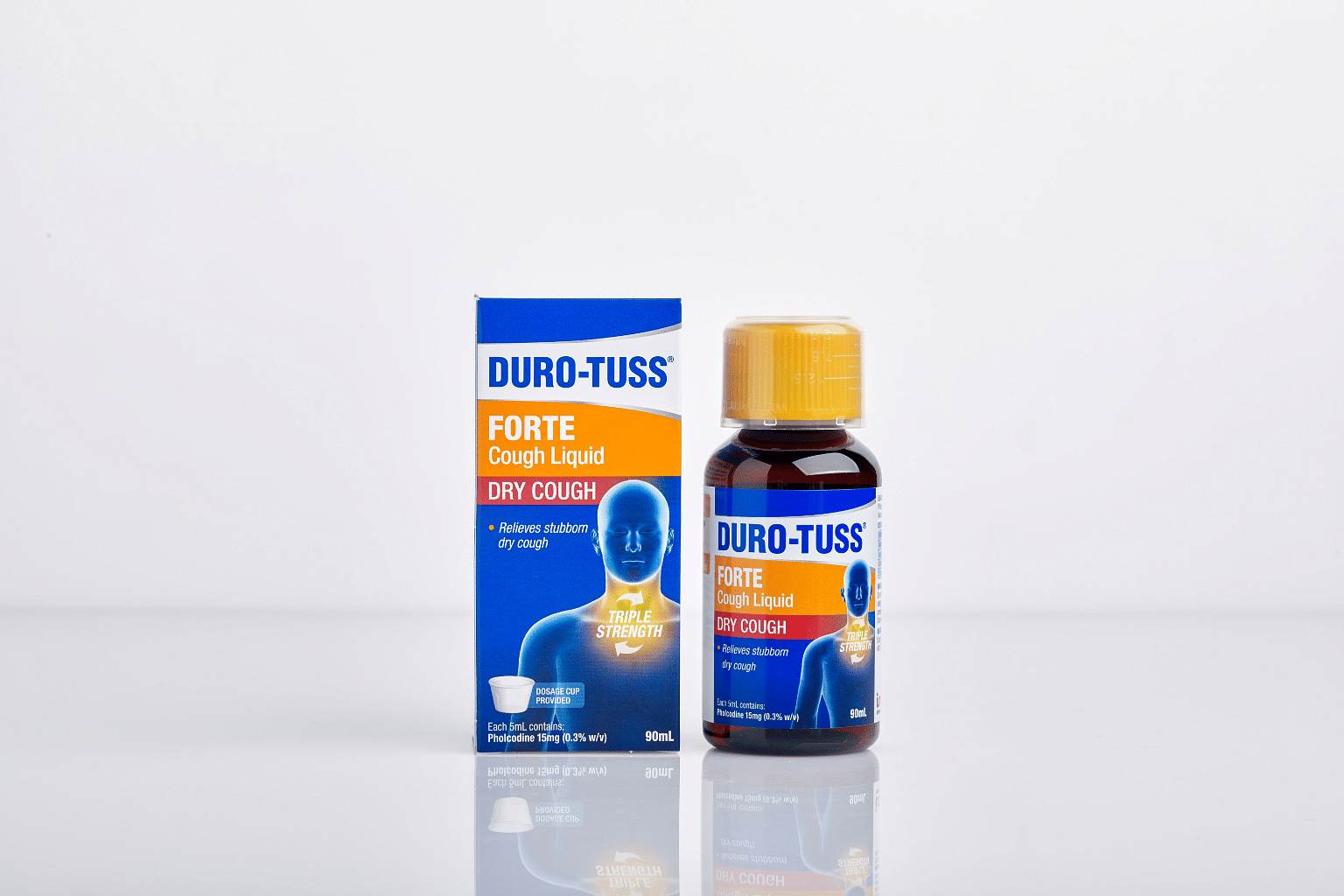BRANDED CONTENT
Dry or chesty cough: Know the difference to treat this annoying symptom more effectively
Got a lingering cough? Understanding what type you have is the first step towards faster recovery – and these targeted products from Duro-Tuss are here to help

A lingering cough is a symptom of long Covid, which is where a patient continues to experience Covid-19 symptoms even after recovering from the illness.
PHOTO: GETTY IMAGES
Recently recovered from Covid-19? You may be back at work but the nasty cough does not seem to be going away.
A lingering cough is a classic symptom of long Covid – that is, the situation where you continue to have Covid-19 symptoms long after recovery.
According to a study of participants in the United Kingdom, 49.8 per cent of patients infected with the Omicron variant suffered from a lingering cough. Closer to home, a study led by the National Centre for Infectious Diseases showed that 10 per cent of recovered Covid-19 patients continued to have lingering coughs and shortness of breath even six months after infection.
Knowing what kind of cough you or your loved one has is the first step to combating this irritating problem.
“Coughs can be very confusing and difficult to distinguish from each other,” says Ms Sue Low, regional senior medical affairs specialist at iNova Pharmaceuticals.
“If you have a scratchy, tickly feeling in the back of your throat that makes you cough, that’s what we call a dry cough. When a cough produces phlegm, it’s called a wet or productive chesty cough because phlegm is wet.”
Dry or tickly coughs occur when the airway is irritated
Coughing is a normal, protective reflex of your body to clear the airways from irritation.
Dry coughs occur when there is an irritating sensation in the throat. Unlike a wet cough, where mucus is hacked up and spat out to clear the airways, dry coughs do not produce phlegm.
There are numerous causes of a dry cough, such as postnasal drip. Your nose produces mucus everyday but in normal circumstances, you won’t notice this as the amount is small enough to mix with your saliva and drip down the back of your throat.
However, when there is excess mucus – for example, in response to an infection – it can trigger your cough reflex. Dry coughs can also occur after taking certain medications or if triggered by allergies or noxious substances such as cigarette smoke or pollutants.
How to deal with a dry cough
Besides drinking enough fluids to keep the airways comfortably lubricated, you can also consider speaking to a doctor about managing environmental factors and treating the postnasal drip.

Duro-Tuss Dry Cough Liquid Forte contains triple the dose of pholcodine, a cough suppresent, to treat stubborn dry coughs.
PHOTO: DURO-TUSS
If you notice you start coughing more at night, it is usually because when you lie on your back, mucus can pool at the back of your throat. Consider propping your head up to reduce the postnasal drip.
To suppress the cough reflex, Ms Low recommends using cough suppressants, also called antitussives. Duro-Tuss® has a range of products targeted at dry coughs, including a version for children. The Duro-Tuss Dry Cough Liquid contains a cough suppressant called pholcodine to relieve dry, tickly coughs.
For particularly stubborn dry coughs, try Duro-Tuss Dry Cough Liquid Forte which contains a triple-strength dose of pholcodine. Another alternative is the sugar-free Duro-Tuss Dry Cough Lozenges which combines pholcodine with an antibacterial ingredient to also relieve sore throats. The lozenges are also a convenient travel companion as you won’t have to worry about carrying liquids.
Wet or chesty coughs often happen because of respiratory tract infection
If you feel congestion in your chest and are coughing up thick, sticky phlegm, you most likely have a wet or chesty cough.
Chesty coughs develop when your body produces more phlegm than normal – often due to a respiratory tract infection or environmental irritants like smog or cigarette smoke. This can lead to irritation and inflammation of the airways and increase phlegm production, resulting in a chesty cough as your body tries to expel the extra phlegm.
How to deal with a wet or chesty cough
To deal with chesty coughs, look for products that contain mucolytics and expectorants. These act to break down and loosen the phlegm in your airways, making it easier to cough up and clear out.

PHOTO: DURO-TUSS
Such products are available in over-the-counter medicines. The Duro-Tuss Chesty Cough Liquid contains bromhexine hydrochloride, a mucolytic that breaks down phlegm and clears chest congestion.
“Getting the right treatment will ensure that the symptoms are managed and relieved appropriately to give the body the best chance for recovery,” says Ms Low.
On top of medicines, getting sufficient rest and plenty of fluids are also important. Steam from a hot shower may also help loosen phlegm, while hot drinks with honey, syrups or lozenges that contain demulcent, which forms a protective layer over your throat, can help soothe it.
If symptoms persist or worsen, or if you experience other troubling symptoms such as difficulty breathing, chest pain, or are coughing up blood, consult a healthcare professional.
Ms Low adds: “As a cough can be associated with other medical conditions, it is important to speak with your doctor if you have further concerns about your cough."
Duro-Tuss cough relief products are available at Guardian, Unity and Watsons stores, as well as selected independent pharmacies, polyclinics and GPs. Always read the label before purchase and follow the directions for use.



